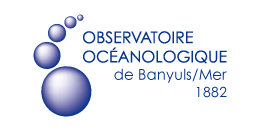Epigenetic variation causes heritable variation in complex traits in the mollusk Biomphalaria glabrata, vector of the human parasite Schistosoma mansoni
Résumé
DNA methylation variation may play a role in phenotypic variation as it can be directly affected by the environment and be inherited. DNA methylation variations were introduced into the parasite vector snail Biomphalaria glabrata with low genetic diversity by chemical treatment in F0 and followed over 3 generations using epigenetic recombinant inbred lines (epiRILs). We observed phenotypic variation in complex traits such as fecundity and susceptibility to infestation by Schistosoma mansoni and DNA methylation differences in F3. Both, increase and decrease of infestation success (up to 100% and down to 20% prevalence in epiRILs and from 86% to 94% in control RILs) indicated variation in complex resistance/compatibility trait. Average prevalence in control RILs was 84±5% but only 68±21 % in epiRILs. Fecundity also changed and was in average 47±7% in control RILs and 59±18% in epiRILs, being 12% higher in epiRILs. We found that the heritability h2 of the fecundity in the epiRILs was between 0.5 and 0.6 depending on the method used to estimate it. We developed a model for introducing epimutant offspring snails into resident susceptible populations. If genetic assimilation of the resistant phenotype occured in a small fraction of the introduced epimutant snails, we predict that the susceptible phenotype is replaced by the resistant phenotype after 50-70 generations.
| Origine | Fichiers produits par l'(les) auteur(s) |
|---|---|
| licence |





